
Bangladesh's political system functions as a parliamentary democracy that holds open elections for all citizens over 18 years of age, where the head of the government is Prime Minister is the head of the government while the controlling Party or the elected members of the parliament vote for the President, the largely symbolic head of Bangladesh. Executive power is exercised by an elected government and the government and parliament exercise Legislative power. Bangladesh's political scene has been chaotic since its independence in 1971. Periods of democratic rule have been interrupted by coups, martial law, and states of emergency.
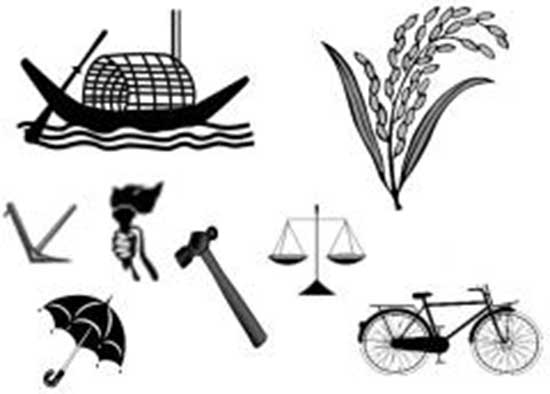
Although Bangladesh has a multi-party system, it has a fading two-party system or two alliances. It is very difficult for anyone to win an election under the banner of another party that is not part of those two Alliances. Those two alliances are the 14-Party Alliance, led by the center-left Awami League, and the 18-Party Alliance, led by the center-right BNP (Bangladesh Nationalist Party) and Islamist Jammat E Islami.
Bangladesh Awami League
Awami League was founded in Dhaka in 1949 when it was the capital of East Pakistan, a former province of Pakistan. It was founded by Maulana Abdul Hamid Khan Bhashani, Shamsul Huq, and Huseyn Shaheed Suhrawardy. The party gained huge popularity in a very short time. Awami League led the forces of Bengali nationalism in the struggle against West Pakistan's military and political establishment. Under the leadership of Sheikh Mujibur Rahman, the Awami League led the struggle for independence of Bangladesh, first through massive populist and civil disobedience movements and then during the Liberation War of Bangladesh. After the liberation war, which resulted in creating an Independent Bangladesh, the Awami League won the first general election in 1973. Still, it was overthrown in 1975 after the assassination of Sheikh Mujibur Rahman. After that, several military regimes forced the party into the political wilderness. After the restoration of democracy in 1990, the party led by Sheikh Hasina emerged as one of the two dominant political parties in Bangladesh.
Bangladesh Nationalist Party (BNP)
BNP was founded in 1978 by Major General Ziaur Rahman, who was the President of Bangladesh under a military regime at that time. The BNP has ruled Bangladesh for a total of 14 years and four terms since it was established (1978-1982, 1991-1996, 1996, 2001-2006). Ziaur Rahman was assassinated in 1981. Khaleda Zia has led the party three times as Prime Minister (1991-1996, 1996, 2001-2006) and is the first female to hold the position since then. BNP formed a 7-party alliance in 1986. The alliance, especially the BNP, gained huge popularity when they boycotted the 1986 election held by a military regime led by Hossain Mohammed Ershad. The Awami League also declared a boycott but later participated. That election was widely criticized as an unfair election. After the election, a nationwide political movement began demanding the resignation of President Ershad. Eventually, Ershad resigned in December 1990. In a fair election in 1991, the BNP won the majority of the seats in parliament. In February 1996, the BNP held a general election, which was boycotted by all other major political parties on demand for an election under a caretaker government. The BNP won the election, though the parliament lasted only a few weeks. After that, the BNP eventually transferred power to an interim caretaker government, which held the election three months later. In that election, the BNP positioned second. In 1998 #BNP joined the four-party alliance, which won the 2001 election.
Bangladesh Jamaat-e-Islami
Jamaat-e-Islami was created in 1941 in British India by Maulana Abul A-la Maududi. This party stood against the independence of Bangladesh and opposed the break-up of Pakistan. It collaborated with the Pakistani Army in its operations against Bangladesh (At that time, East Pakistan). Its members led the Shanti Committee, Razakar, and Al-Badr paramilitary forces that were implicated in war crimes, such as mass murders, destroying and looting private properties, and rapes. Upon the independence of Bangladesh in 1971, the Bangladesh government banned Jamaat-e-Islami from political participation, and its leaders went into exile in Pakistan. The ban on the Jamaat-e-Islami was lifted, and its leaders were allowed to return to the Military Regime of Ziaur Rahman. In the 1980s, the Jamaat joined the multi-party alliance to restore democracy. It later joined the BNP-led alliance, eventually winning the general election in 2001. Two Jamaat Leaders became the ministers of that period.
Jatiya Party (JP - Ershad)
Jatiya party was founded by Hussain Mohammad Ershad on 1st January 1986, who was then the President of Bangladesh under a military regime. Lieutenant General Hussain Muhammad Ershad usurped the military coup on 24th March 1982 and declared himself chief martial law administrator. All activities of political parties were banned, and a state of emergency was declared. Ershad wanted more civilian influence and decided to develop a political party to represent his government, that is the reason he founded the Jatiya Party. Ershad declared a general election in 1986, though Awami League and BNP first declared to boycott the election. However, the Awami League later participated in that election, where the Jatiya Party gained the majority. The election's fairness was questioned nationally and internationally, which began the political movement demanding the resignation of President Ershad. Eventually, Ershad resigned in December 1990. In the general election of 1991, the Jatiya Party emerged as the third force by securing 35 seats in the parliament. In the 1996 election, the Jatiya Party supported the Awami League in forming the government. However, Ershad then went against Awami League and joined 4 party alliance led by the BNP. However, Ershad left the alliance and formed a new alliance, the Islamic Jatiyo Oikko Front, which participated in the 2001 election. Ershad formed an alliance with the Awami League in 2006, which won the general election in 2008.
Bangladesh Jatiya Party (BJP)
BJP is a splinter group of the original Jatiya Party, which was established by Hossain Mohammed Ershad. BJP was founded by Naziur Rahman Manjur, who was serving as the Local Government, Rural Development [LGRD] Minister and Mayor of Dhaka under Ershad's government. He also served as the secretary general of the Ershad Jatiya Party. When Ershad led the Jatiya Party and decided to leave the four-party alliances, Manjur formed the BJP to remain in the alliance. The party is now led by Barrister Aandaleeve Rahman Partho, son of Manjur.
Communist Party of Bangladesh
The Communist Party of Bangladesh was founded in 1968 as the Communist Party of East Pakistan. It was first founded as the Communist Party of India (CPI). After the portions of India, the members coming from Pakistan (which included what now constitutes Bangladesh as East Pakistan) met on March 6, 1948, in a separate session and decided to form the Communist Party of Pakistan. In 1968, the country's eastern wing declared itself a separate party as the Communist Party of East Pakistan. The Party played a vital role in the struggle against West Pakistan's military and political establishment, mainly the 1969 uprising and the non-cooperation movement in 1971. The Party also actively participated in the liberation war.
Liberal Democratic Party
The Liberal Democratic Party was formed on October 26, 2006, by former Bangladesh Presidents Dr. A. Q. M. Badruddoza Chowdhury and Dr. Oli Ahmad, and 24 other former Members of Parliament and ministers from the BNP. However, a few months after forming the party, Badruddoza Chowdhury left with his followers.
Bikalpa Dhara Bangladesh
Bikalpa Dhara Bangladesh was founded by former President of Bangladesh and BNP parliamentarian Dr. A. Q. M. Badruddoza Chowdhury in 2004 when his own party members forced him to abdicate his presidency.
Workers Party of Bangladesh
Workers Party of Bangladesh was founded in 1980 by the Bangladesh Communist Party (Leninist), Revolutionary Communist League, Majdur Party, and another group.
Islami Oikya Jote
Islami Oikya Jote was formed by Islamist Political parties in Bangladesh. It joined the four-party alliances and collaborated with them in the 2001 election.
Hefazat-e-Islam Bangladesh
Hefazat-e-Islam Bangladesh was formed in 2010 by teachers of more than one hundred Kawmi madrasas in Chittagong. It was founded to protest the government's anti-Islamic policies. The party's main founders are Ahmad Shafi and Mufti Izharul Islam.

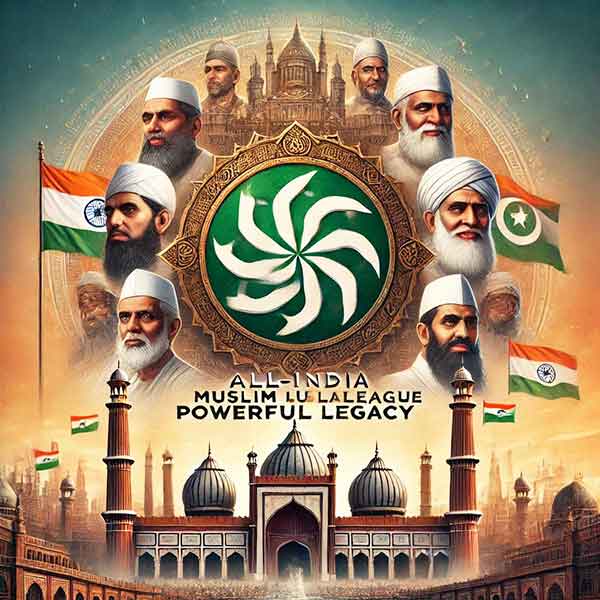
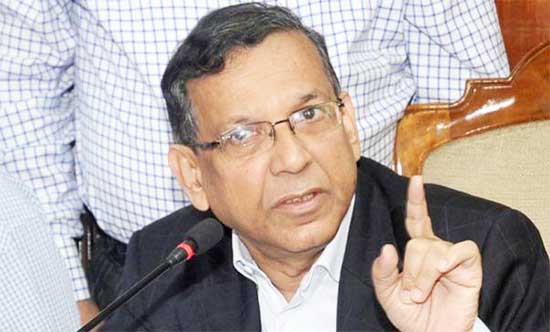
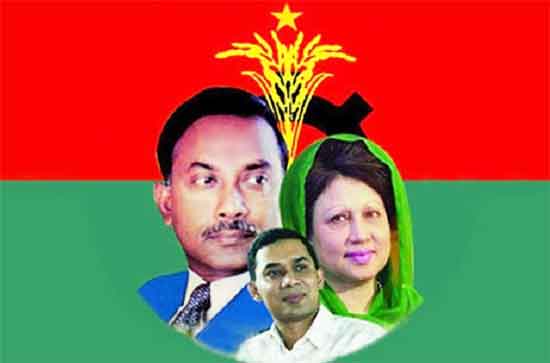
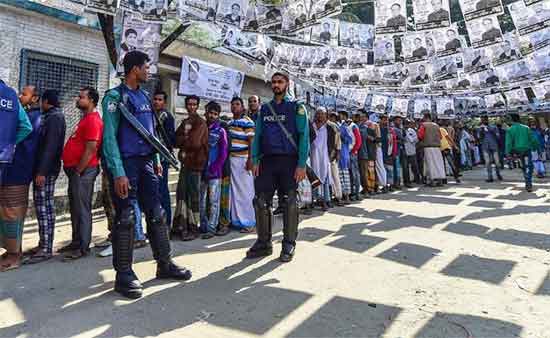
I know this web site offers quality based articles and other stuff,
is there any other website which provides such data in quality?